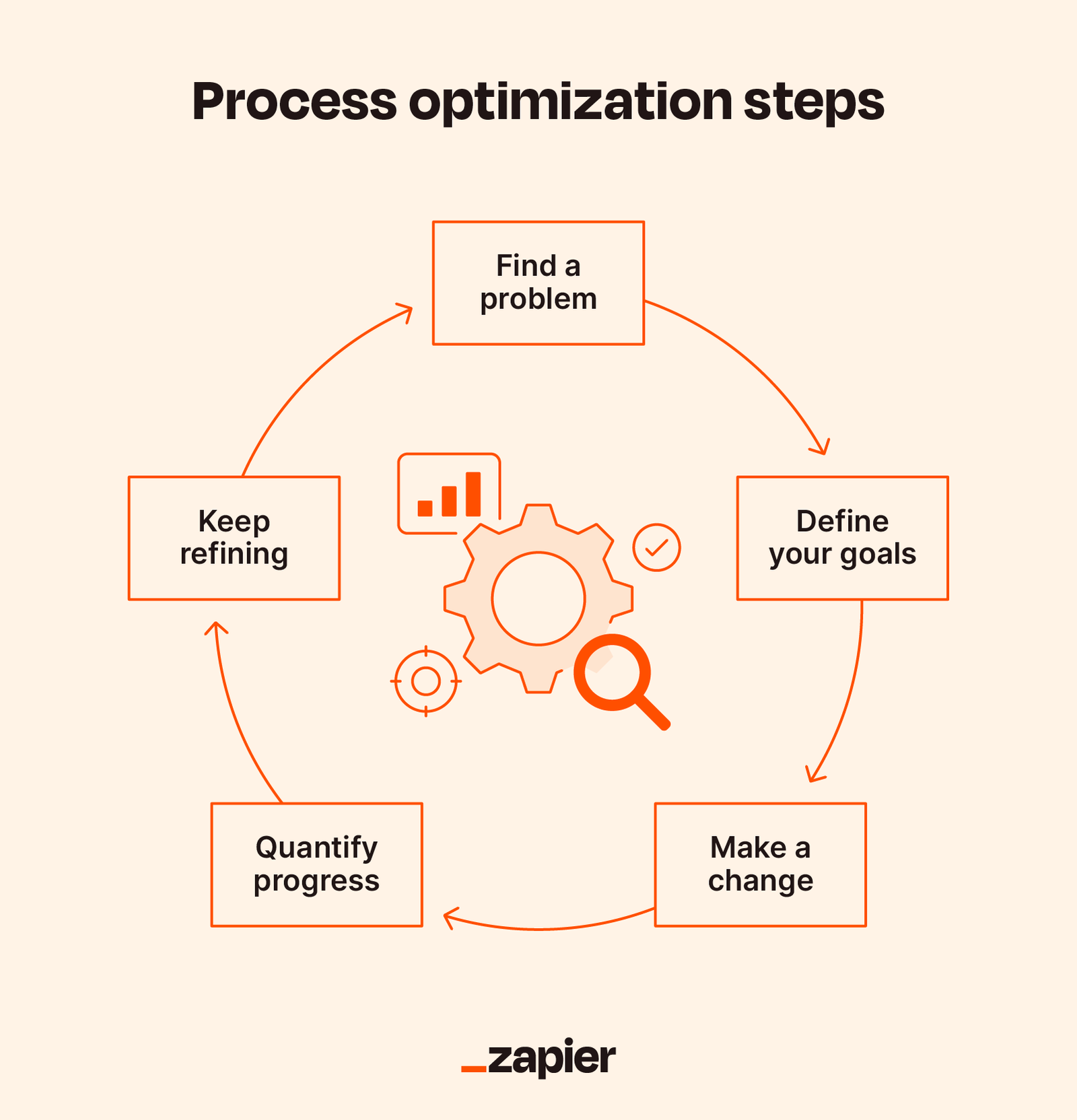
In the world of project management, business optimization plays a crucial role in ensuring the success and efficiency of projects. With the ever-increasing complexity and demands of modern business, it has become essential for organizations to streamline their processes, maximize resources, and achieve optimal results. In this article, we will explore the importance of business optimization in project management and how it can lead to improved outcomes and increased profitability.
When it comes to project management, there are numerous factors that can impact the success of a project. From resource allocation to risk management, every aspect needs to be carefully considered and optimized for optimal performance. Business optimization involves analyzing and improving various aspects of a project, such as workflow, communication, and decision-making processes. By identifying areas of improvement and implementing effective strategies, organizations can enhance productivity, reduce costs, and deliver projects on time and within budget. Whether it’s streamlining processes, eliminating bottlenecks, or enhancing collaboration, business optimization plays a vital role in maximizing the overall efficiency and effectiveness of project management. By leveraging data and analytics, businesses can make informed decisions, identify opportunities for improvement, and continuously refine their project management practices. So, let’s dive deeper into the world of business optimization and discover how it can transform project management for the better.
The Role of Business Optimization in Project Management
Business optimization plays a crucial role in project management by maximizing efficiency and productivity. By analyzing and improving processes, businesses can identify bottlenecks, streamline workflows, and allocate resources effectively. This results in improved project outcomes, reduced costs, and increased customer satisfaction. Business optimization techniques include lean management, Six Sigma, and process automation. These strategies enable organizations to adapt to changing market conditions and stay competitive in today’s fast-paced business environment.

The Role of Business Optimization in Project Management
Project management is a complex and multifaceted discipline that requires careful planning, coordination, and execution to ensure successful project outcomes. One crucial aspect of project management is business optimization, which plays a vital role in maximizing efficiency and achieving project goals. Business optimization involves analyzing and improving various aspects of an organization’s operations to enhance performance and productivity. In the context of project management, it focuses on streamlining processes, reducing waste, and enhancing overall project outcomes.
The Benefits of Business Optimization in Project Management
Business optimization brings numerous benefits to project management, contributing to the success of projects. Firstly, it helps identify and eliminate inefficiencies in project workflows, enabling teams to work more effectively and achieve better results. By streamlining processes and reducing unnecessary tasks, project managers can save time and allocate resources more efficiently, leading to improved project delivery.
Secondly, business optimization enhances communication and collaboration among project stakeholders. Through optimized processes, information flows more smoothly between team members, allowing for better coordination and alignment of project objectives. This leads to increased transparency, fewer misunderstandings, and improved decision-making, ultimately driving project success.
Furthermore, business optimization enables project managers to identify and mitigate risks more effectively. By analyzing various aspects of the project and the organization’s operations, potential risks can be identified early on, allowing for proactive measures to be taken. This helps minimize the impact of risks on project timelines, budgets, and deliverables, ensuring smoother project execution.
Streamlining Project Workflows
One area where business optimization plays a crucial role in project management is in streamlining workflows. By carefully analyzing project processes, project managers can identify bottlenecks, redundancies, and unnecessary steps that hinder project progress. Through process optimization, these inefficiencies can be eliminated or minimized, allowing for smoother and faster project execution.
Streamlining project workflows involves identifying the critical path of the project, which refers to the sequence of activities that directly impact the project’s timeline. By optimizing the critical path, project managers can focus resources and efforts on the most important tasks, reducing the risk of delays and ensuring timely project completion.
Process automation is another key aspect of streamlining workflows. By automating repetitive and manual tasks, project teams can save time and allocate resources more efficiently. This not only increases productivity but also reduces the likelihood of human errors, leading to improved project outcomes.
In conclusion, business optimization plays a crucial role in project management by enhancing efficiency, improving communication and collaboration, and mitigating risks. By streamlining workflows and optimizing processes, project managers can achieve better results, deliver projects on time and within budget, and ultimately contribute to the success of the organization. Incorporating business optimization principles into project management practices is essential for organizations that strive for continuous improvement and excellence in project delivery.

The Role of Business Optimization in Project Management
Key Takeaways:
- Business optimization helps project managers identify and implement strategies to improve efficiency and productivity.
- It involves analyzing processes, identifying bottlenecks, and implementing solutions to streamline operations.
- Business optimization plays a crucial role in maximizing resources and minimizing costs in project management.
- By optimizing business processes, project managers can enhance project outcomes and meet project goals more effectively.
- Continuous monitoring and evaluation of business processes are essential for ongoing optimization and success in project management.
Frequently Asked Questions
What is the importance of business optimization in project management?
Business optimization plays a crucial role in project management as it helps maximize efficiency and productivity. By identifying and eliminating waste, redundancies, and inefficiencies, businesses can streamline their processes and ensure that projects are completed on time and within budget. Furthermore, business optimization enables organizations to make data-driven decisions and allocate resources effectively, resulting in improved project outcomes.
Moreover, business optimization fosters continuous improvement by encouraging teams to identify areas for enhancement and implement innovative solutions. This not only enhances project performance but also drives overall organizational success, as streamlined and optimized processes can lead to increased customer satisfaction and competitive advantage.
How does business optimization contribute to project success?
Business optimization contributes to project success by enabling organizations to identify and leverage their strengths while mitigating weaknesses. Through careful analysis and optimization of business processes, project managers can identify potential bottlenecks, risks, and resource constraints that might hinder project progress. By addressing these issues proactively, teams can optimize their workflows, allocate resources efficiently, and ensure timely project completion.
Additionally, business optimization facilitates effective communication and collaboration among project stakeholders. By streamlining communication channels, standardizing processes, and implementing clear roles and responsibilities, teams can minimize misunderstandings and conflicts, leading to improved project coordination and ultimately, project success.
Can business optimization help in risk management during projects?
Yes, business optimization can greatly aid in risk management during projects. By optimizing business processes, organizations can identify potential risks and develop strategies to mitigate them. Through data analysis and performance tracking, project managers can identify patterns and trends, allowing them to anticipate and address risks before they escalate.
Furthermore, business optimization enables organizations to establish robust risk management frameworks, such as contingency plans and risk response strategies. By integrating risk management into project planning and execution, teams can effectively manage uncertainties, minimize project disruptions, and ensure project success.
How does business optimization impact project timelines and budgets?
Business optimization has a significant impact on project timelines and budgets. By eliminating bottlenecks, reducing waste, and streamlining processes, organizations can expedite project timelines and minimize delays. This allows projects to be completed within the allocated timeframes, ensuring timely delivery and customer satisfaction.
Moreover, business optimization helps organizations allocate resources efficiently, avoiding unnecessary expenses and optimizing budget utilization. By identifying and eliminating unnecessary costs, organizations can allocate resources to critical project activities, reducing financial risks and maximizing project outcomes.

What are some key strategies for implementing business optimization in project management?
Implementing business optimization in project management requires a strategic approach. Some key strategies include:
- Conducting a thorough analysis of existing business processes to identify inefficiencies and areas for improvement.
- Setting clear objectives and key performance indicators (KPIs) to measure progress and success.
- Implementing technology solutions, such as project management software, to automate and streamline processes.
- Fostering a culture of continuous improvement, encouraging teams to actively identify and implement optimization initiatives.
- Regularly reviewing and evaluating the effectiveness of optimization strategies to ensure ongoing improvement.
By implementing these strategies, organizations can optimize their business processes and drive project success.

Final Summary: The Importance of Business Optimization in Project Management
When it comes to project management, business optimization plays a crucial role in ensuring success. By implementing effective strategies and utilizing the right tools, businesses can streamline their operations, increase efficiency, and achieve their project goals more effectively. Throughout this article, we have explored the various ways in which business optimization impacts project management, from enhancing productivity to improving resource allocation. Let’s recap some of the key takeaways.
First and foremost, business optimization allows organizations to identify and eliminate inefficiencies within their processes. By analyzing workflows and identifying bottlenecks, businesses can make informed decisions on how to improve their operations. This can involve automating repetitive tasks, implementing lean methodologies, or adopting agile project management approaches. By optimizing their processes, businesses can save time, reduce costs, and ultimately deliver projects more efficiently.
Additionally, business optimization enables better resource management. By optimizing resource allocation and utilization, organizations can ensure that they have the right people with the right skills working on the right tasks at the right time. This not only maximizes productivity but also minimizes the risk of resource shortages or overloads, leading to smoother project execution and timely delivery.
Furthermore, business optimization facilitates effective communication and collaboration among team members. By implementing communication tools, establishing clear communication channels, and fostering a collaborative culture, businesses can enhance information sharing and decision-making. This improves coordination, reduces misunderstandings, and promotes a more cohesive team dynamic, ultimately leading to better project outcomes.
In conclusion, business optimization is a vital component of successful project management. By optimizing processes, managing resources effectively, and fostering collaboration, businesses can achieve higher levels of productivity, efficiency, and project success. So, embrace the power of business optimization and unlock the full potential of your projects.